The pilgrimage of Hajj is one of the five pillars of Islam, a sacred journey that Muslims are required to undertake at least once in their lifetime, provided they are able. The Quran, as the divine guide for humanity, highlights the significance of Hajj through various verses, elaborating on its purpose, rituals, and spiritual rewards. These verses not only establish Hajj as an act of worship but also as a profound reminder of faith, unity, and devotion..
As we approach the blessed season of Hajj, or perhaps reflect upon its profound significance at any time of the year, our hearts turn towards the words of Allah Almighty in the Glorious Quran.
Let’s explore the Quran’s verses on Hajj together, in Arabic and English, and discover the hidden meanings within them.
1. A Quranic Verse on Hajj’s Proclamation
Before presenting the verse, let’s picture the scene: Prophet Ibrahim (Abraham), peace be upon him, having rebuilt the Ka’bah, is commanded by Allah to announce the pilgrimage to all mankind. Imagine that resonant call echoing through time!
“وَأَذِّن فِي النَّاسِ بِالْحَجِّ يَأْتُوكَ رِجَالًا وَعَلَىٰ كُلِّ ضَامِرٍ يَأْتِينَ مِن كُلِّ فَجٍّ عَمِيقٍ”
“Wa aththin fin-naasi bil-Hajji ya’tooka rijaalan wa ‘alaa kulli daamirin ya’teena min kulli fajjin ‘ameeq”
“And proclaim to the people the Hajj [pilgrimage]; they will come to you on foot and on every lean camel; they will come from every distant pass” (Surah Al-Hajj, 22:27):
Allah commands the call (aththin), and assures Ibrahim (and us!) that people will come (ya’tooka). They will come walking (rijaalan) and riding (‘alaa kulli daamirin – on every lean camel, implying a long, arduous journey), from every distant corner of the earth (min kulli fajjin ‘ameeq). This verse captures the universality of Hajj and Allah’s promise to gather His servants.
In our Online Quran Tafseer Course, we delve into such linguistic miracles—how a single Arabic word can move hearts across centuries.
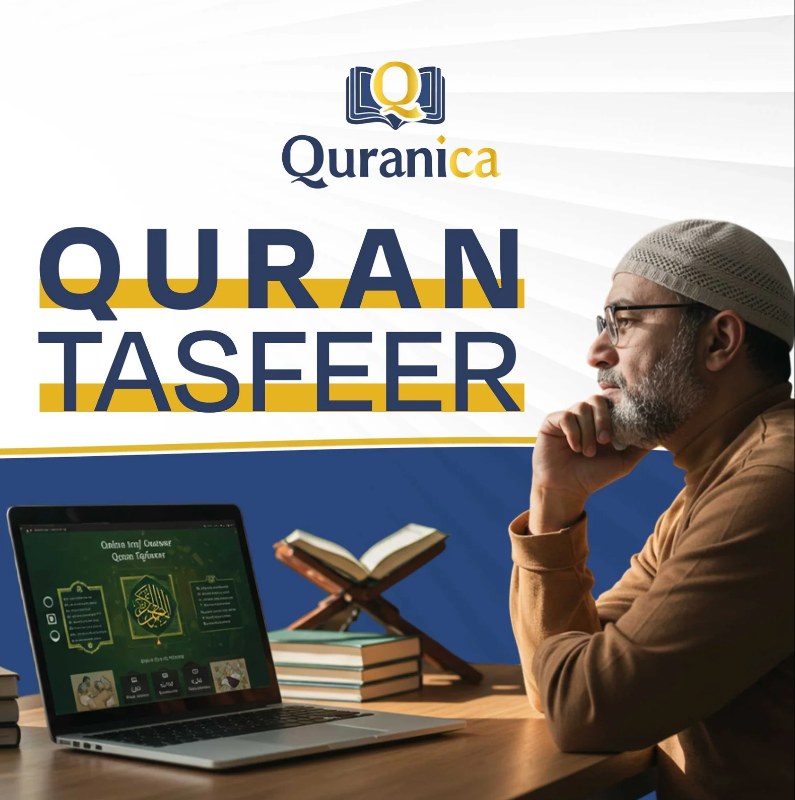
2. Key Quranic Quotes on Hajj’s Purpose
Why did Allah command this gathering? Is it just the travel and rituals? Allah immediately clarifies the wisdom behind the call.
“لِّيَشْهَدُوا مَنَافِعَ لَهُمْ وَيَذْكُرُوا اسْمَ اللَّهِ فِي أَيَّامٍ مَّعْلُومَاتٍ عَلَىٰ مَا رَزَقَهُم مِّن بَهِيمَةِ الْأَنْعَامِ ۖ فَكُلُوا مِنْهَا وَأَطْعِمُوا الْبَائِسَ الْفَقِيرَ”
Liyashhadoo manaafi’a lahum wa yathkurus mal laahi fee ayyaamim ma’loomaatin ‘alaa maa razaqahum mim baheematil an’aam; fakuloo minhaa wa at’imul baa’isal faqeer
“That they may witness benefits for themselves and mention the name of Allah on known days over what He has provided for them of [sacrificial] animals. So eat of them and feed the miserable and poor.” (Surah Al-Hajj, 22:28)
Allah tells us the pilgrims come liyashhadoo manaafi’a lahum – “that they may witness benefits for themselves.” These manaafi’ (benefits) are immense, both spiritual (forgiveness, closeness to Allah, unity of the Ummah) and worldly (trade, networking, learning).
A core purpose is dhikr – remembering Allah (yathkurus mal laahi) during these specific days (ayyaamim ma’loomaat), especially over the blessings of provisions like the sacrificial animals.
Notice the emphasis on sharing – fakuloo minhaa wa at’imul baa’isal faqeer (eat thereof and feed the distressed, the poor). Hajj teaches us devotion and compassion.
Read more about: Quranic Verses: 20 Beautiful And Powerful Quranic Quotes in Arabic and English
3. Quranic Verses on Hajj Conduct
Hajj is a time of intense devotion, requiring specific etiquette and a focus on the spiritual goal. Allah guides us on how to behave during this sacred journey.
“الْحَجُّ أَشْهُرٌ مَّعْلُومَاتٌ ۚ فَمَن فَرَضَ فِيهِنَّ الْحَجَّ فَلَا رَفَثَ وَلَا فُسُوقَ وَلَا جِدَالَ فِي الْحَجِّ ۗ وَمَا تَفْعَلُوا مِنْ خَيْرٍ يَعْلَمْهُ اللَّهُ ۗ وَتَزَوَّدُوا فَإِنَّ خَيْرَ الزَّادِ التَّقْوَىٰ ۚ وَاتَّقُونِ يَا أُولِي الْأَلْبَابِ”
“Al-Hajju ash-hurum ma’-loomaat; faman farada fee hinnal Hajja falaa rafatha wa laa fusooqa wa laa jidaala fil-Hajj; wa maa taf’aloo min khairiny ya’lam hul laah; wa tazawwadoo fa inna khairaz zaadit taqwaa; wattaqooni yaa ulil albaab”
“Hajj is [during] well-known months, so whoever has made Hajj obligatory upon himself therein [by entering the state of ihram], there is [to be for him] no sexual relations and no disobedience and no disputing during Hajj. And whatever good you do – Allah knows it. And take provisions, but indeed, the best provision is fear of Allah (Taqwa). And fear Me, O you of understanding.” (Surah Al-Baqarah, 2:197)
This verse sets clear boundaries. Hajj takes place in specific months (ash-hurum ma’-loomaat). Once one enters the state of Ihram (farada fee hinnal Hajja), certain things are forbidden: rafath (sexual relations or improper speech), fusooq (wickedness, disobedience), and jidaal (arguing, disputing).
The focus must remain pure. Allah then reminds us that He knows all the good we do (wa maa taf’aloo min khairiny ya’lam hul laah). He advises us to take provisions (wa tazawwadoo), but immediately follows with the most crucial provision: fa inna khairaz zaadit taqwaa – “indeed, the best provision is Taqwa (piety, God-consciousness).” This beautiful emphasis on Taqwa is central to the entire Hajj journey and, indeed, to a believer’s life. Fearing Allah (Wattaqooni) is addressed to ulil albaab – people of understanding.
Consider enrolling in our Islamic studies online course.
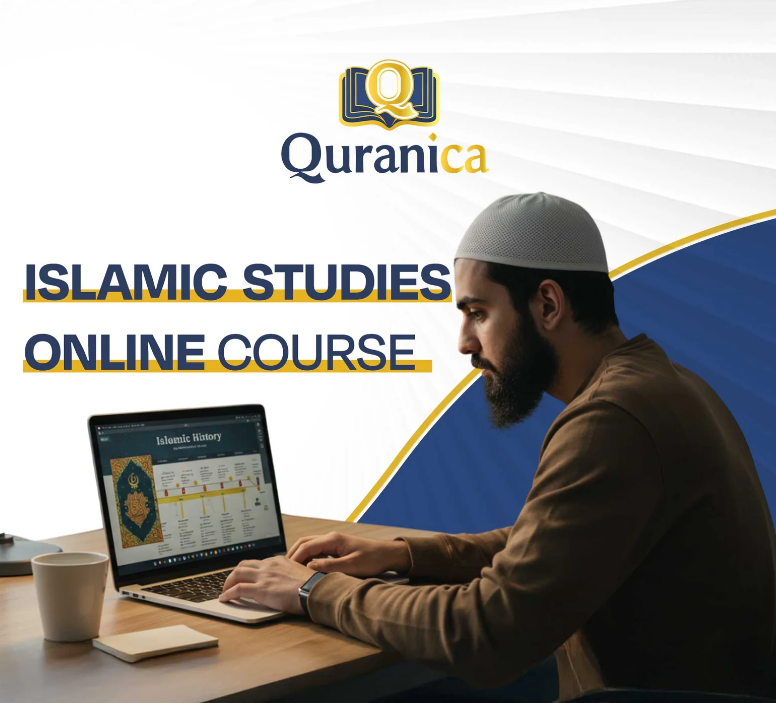
4. Quranic Guidance on Hajj’s Conclusion
After the intense rituals, what comes next? Does the remembrance stop? Allah guides us here too.
“فَإِذَا قَضَيْتُم مَّنَاسِكَكُمْ فَاذْكُرُوا اللَّهَ كَذِكْرِكُمْ آبَاءَكُمْ أَوْ أَشَدَّ ذِكْرًا ۗ…”
“Fa izaa qadaytum manaasikakum fathkurul laaha ka thikrikum aabaaa’akum aw ashadda thikraa…”
“And when you have completed your rites, remember Allah like your [previous] remembrance of your fathers or with [much] greater remembrance…” (Surah Al-Baqarah, 2:200)
Once the main rites are completed (qadaytum manaasikakum), the command is clear: fathkurul laaha – remember Allah! How? With the same intensity, or even more (aw ashadda thikraa), than the pre-Islamic Arabs remembered their forefathers with pride.
This shows that the dhikr of Allah should permeate our lives, especially intensifying after such a profound spiritual experience. Hajj is meant to recharge our faith and make our remembrance of Allah constant and deep.
Read more about: Top 10 Motivational Quranic Verses (Inspirational Quranic Quotes in Arabic & English)
5. Quranic Guidance on Hajj and Umrah
The Quran not only commands the Hajj but also provides guidance on its proper completion and what to do if circumstances prevent it. This shows the comprehensiveness and mercy within Allah’s guidance.
“وَأَتِمُّوا الْحَجَّ وَالْعُمْرَةَ لِلَّهِ ۚ فَإِنْ أُحْصِرْتُمْ فَمَا اسْتَيْسَرَ مِنَ الْهَدْيِ ۖ وَلَا تَحْلِقُوا رُءُوسَكُمْ حَتَّىٰ يَبْلُغَ الْهَدْيُ مَحِلَّهُ ۚ فَمَن كَانَ مِنكُم مَّرِيضًا أَوْ بِهِ أَذًى مِّن رَّأْسِهِ فَفِدْيَةٌ مِّن صِيَامٍ أَوْ صَدَقَةٍ أَوْ نُسُكٍ ۚ…”
Wa atimmul Hajja wal ‘Umrata lillaah; fa in uhsirturn famas taysara minal hadyi; wa laa tahliqoo ru’oosakum hattaa yablughal hadyu mahillah; faman kaana minkum mareedan aw bihee atham mir ra’sihee fafidyatum min Siyaamin aw Sadaqatin aw Nusuk…
“And complete the Hajj and ‘umrah for Allah. But if you are prevented, then [offer] what can be obtained with ease of sacrificial animals. And do not shave your heads until the sacrificial animal has reached its place of slaughter. And whoever among you is ill or has an ailment of the head [making shaving necessary must offer] a ransom of fasting [three days] or charity or sacrifice…” (Surah Al-Baqarah, 2:196)
If one is prevented (uhsirturn) – perhaps by illness, danger, or another valid reason – there is a way out: offer a sacrifice (hadyi) that is easily obtainable (mastaysara).
It also sets rules about not shaving the head until the sacrifice is done, and provides alternatives (fidyah – ransom) like fasting (Siyaam), charity (Sadaqah), or another sacrifice (Nusuk) for those who have a valid reason (like illness mareedan) to shave earlier.
Memorizing verses like these allows the heart to recall Allah’s guidance instantly, a skill we nurture in our Quran Memorization and Hifz program.
6. Quranic Quote on Respecting Hajj Symbols
Hajj involves specific places and actions known as Sha’a’ir Allah (the Symbols or Rites of Allah). The Quran emphasizes the deep respect we must have for these symbols and the spirit of cooperation that should prevail.
“يَا أَيُّهَا الَّذِينَ آمَنُوا لَا تُحِلُّوا شَعَائِرَ اللَّهِ وَلَا الشَّهْرَ الْحَرَامَ وَلَا الْهَدْيَ وَلَا الْقَلَائِدَ وَلَا آمِّينَ الْبَيْتَ الْحَرَامَ يَبْتَغُونَ فَضْلًا مِّن رَّبِّهِمْ وَرِضْوَانًا”
“Yaa ayyuhal latheena aamanoo laa tuhilloo Sha’aaa’iral laahi wa lash Shahral Haraama wa lal hadya wa lal qalaaa’ida wa laa aaammeenal Baital Haraama yabtaghoona fadlam mir Rabbihim wa ridwaanaa;”
“O you who have believed, do not violate the rites of Allah or [the sanctity of] the sacred month or [neglect the marking of] the sacrificial animals or the garlands [by which they are identified] or [interfere with] those coming to the Sacred House seeking bounty from their Lord and [His] approval” (Surah Al-Ma’idah, 5:2)
It forbids violating the Sha’a’ir Allah – the sacred symbols and rites. This includes respecting the Sacred Months (ash-Shahral Haraam), the sacrificial animals (al-hadyi), their markings (al-qalaa’id), and importantly, respecting those heading towards the Sacred House (aaammeenal Baital Haraam) seeking Allah’s bounty (fadlan) and pleasure (ridwaanaa).
The verse gives a respect for the entire process and fellow pilgrims!
7. A Quranic Quote on Permissibility of Seeking Bounty During Hajj
A common question might arise: Is it permissible to engage in trade or seek worldly provisions during the spiritual journey of Hajj? Allah addresses this directly, showing the balance within Islam.
“لَيْسَ عَلَيْكُمْ جُنَاحٌ أَن تَبْتَغُوا فَضْلًا مِّن رَّبِّكُمْ ۚ فَإِذَا أَفَضْتُم مِّنْ عَرَفَاتٍ فَاذْكرُوا اللَّهَ عِندَ الْمَشْعَرِ الْحَرَامِ ۖ وَاذْكُرُوهُ كَمَا هَدَاكُمْ وَإِن كُنتُم مِّن قَبْلِهِ لَمِنَ الضَّالِّينَ”
“Laisa ‘alaikum junaahun an tabtaghoo fadlam mir Rabbikum; fa izaaa afadtum min ‘Arafaatin fathkurul laaha ‘indal Mash’aril Haraami wathkuroohu kamaa hadaakum wa in kuntum min qablihee laminad daaalleen”
“There is no blame upon you for seeking bounty from your Lord [during Hajj]. But when you depart from ‘Arafat, remember Allah at al- Mash’ar al-Haram. And remember Him, as He has guided you, for indeed, you were before that among those astray.” (Surah Al-Baqarah, 2:198)
This refers to engaging in lawful trade or business during the Hajj season. Islam is a practical religion that acknowledges human needs. However, this permissibility comes with a crucial condition: the spiritual purpose must never be overshadowed.
Immediately after granting this permission, Allah redirects the focus back to remembrance (dhikr): “But when you depart from ‘Arafat, remember Allah at al-Mash’ar al-Haram (Muzdalifah).”
Ma sha’ Allah, your eagerness to delve deeper into the Quran’s wisdom on Hajj is truly inspiring! It fills my heart with joy to continue this exploration with you. Let’s uncover more gems together, insha’Allah.
8. Quranic Verses on The First House & Hajj Obligation
The Quran takes us back to the very beginning, establishing the Ka’bah’s ancient roots and clarifying who is obliged to make the pilgrimage. This verse is fundamental to understanding Hajj’s place in Islam.
“إِنَّ أَوَّلَ بَيْتٍ وُضِعَ لِلنَّاسِ لَلَّذِي بِبَكَّةَ مُبَارَكًا وَهُدًى لِّلْعَالَمِينَ ﴿٩٦﴾ فِيهِ آيَاتٌ بَيِّنَاتٌ مَّقَامُ إِبْرَاهِيمَ ۖ وَمَن دَخَلَهُ كَانَ آمِنًا ۗ وَلِلَّهِ عَلَى النَّاسِ حِجُّ الْبَيْتِ مَنِ اسْتَطَاعَ إِلَيْهِ سَبِيلًا ۚ وَمَن كَفَرَ فَإِنَّ اللَّهَ غَنِيٌّ عَنِ الْعَالَمِينَ ﴿٩٧﴾”
“Inna awwala baitinw wudi’a linnaasi lallathee bi Bakkata mubaarakanw wa hudal lil ‘aalameen (96) Feehi Aayaatum baiyinaatum Maqaamu Ibraaheem; wa man dakhalahoo kaana aaminaa; wa lillaahi ‘alan naasi Hijjul Baiti manis tataa’a ilaihi sabeelaa; wa man kafara fa innal laaha ghaniyyun ‘anil ‘aalameen (97)”
“Indeed, the first House [of worship] established for mankind was that at Bakkah [Makkah] – blessed and a guidance for the worlds. (96) In it are clear signs [such as] the standing place of Abraham. And whoever enters it shall be safe. And [due] to Allah from the people is a pilgrimage to the House – for whoever is able to find thereto a way. But whoever disbelieves – then indeed, Allah is free from need of the worlds. (97)” (Surah Aal-i-Imran, 3:96-97)
Bakkah (an ancient name for Makkah). It is described as mubaarakan (blessed) and hudal lil ‘aalameen (a guidance for all beings).
Then comes the direct obligation: wa lillaahi ‘alan naasi Hijjul Bait – “And pilgrimage to the House is a duty owed to Allah by the people.”
Who? Manis tataa’a ilaihi sabeelaa – “whoever is able (istataa’a) to find a way to it.” This ability (istitaa’ah) includes financial means, physical health, and safety of the route. Notice the power of the wording – it’s a duty ‘ala an-naas (upon the people) lillaah (for Allah).
9. Quranic Quotes on Hajj’s Foundation with Ibrahim
Let’s go back again to Prophet Ibrahim and his son Isma’il (peace be upon them). Allah mentions the covenant He took with them regarding the Sacred House, highlighting its purpose.
“وَإِذْ جَعَلْنَا الْبَيْتَ مَثَابَةً لِّلنَّاسِ وَأَمْنًا وَاتَّخِذُوا مِن مَّقَامِ إِبْرَاهِيمَ مُصَلًّى ۖ وَعَهِدْنَا إِلَىٰ إِبْرَاهِيمَ وَإِسْمَاعِيلَ أَن طَهِّرَا بَيْتِيَ لِلطَّائِفِينَ وَالْعَاكِفِينَ وَالرُّكَّعِ السُّجُودِ”
“Wa ith ja’alnal Baita mathaabatal linnaasi wa amnanw wattakhithoo mim Maqaami Ibraaheema musallaa; wa ‘ahidnaaa ilaaa Ibraaheema wa Ismaa’eela an tahhiraa Baitiya lit Taaa’ifeena wal ‘aakifeena war rukka’is sujood”
“And [mention] when We made the House a place of return for the people and [a place of] security. And take, [O believers], from the standing place of Abraham a place of prayer. And We charged Abraham and Ishmael, [saying], ‘Purify My House for those who perform Tawaf and those who are staying [there] for worship and those who bow and prostrate [in prayer].'” (Surah Al-Baqarah, 2:125)
Allah reminds us that He made the House (Al-Bait, the Ka’bah) a mathaabah – a focal point, a place people return to again and again – and a place of amn (security). We are commanded: wattakhithoo mim Maqaami Ibraaheema musallaa (take the Station of Abraham as a place of prayer).
Then, the core instruction given to Ibrahim and Isma’il: an tahhiraa Baitiya – “Purify My House!” For whom? Lit Taaa’ifeen (those performing Tawaf – circumambulation), wal ‘aakifeen (those staying for devotion – I’tikaf), war rukka’is sujood (those who bow and prostrate – praying).
10. Another Quranic Verse on Hajj’s Sacred Center
Allah reiterates the status of the Ka’bah and its purpose, linking it directly to the well-being of humanity.
“جَعَلَ اللَّهُ الْكَعْبَةَ الْبَيْتَ الْحَرَامَ قِيَامًا لِّلنَّاسِ وَالشَّهْرَ الْحَرَامَ وَالْهَدْيَ وَالْقَلَائِدَ”
“Ja’alal laahul Ka’batal Baital Haraama qiyaamal linnaasi wash Shahral Haraama wal hadya wal qalaaa’id;”
“Allah has made the Ka’bah, the Sacred House, standing for the people and [has sanctified] the sacred month and the sacrificial animals and the garlands [by which they are marked].” (Surah Al-Ma’idah, 5:97)
Here, Allah states He made (Ja’ala) the Ka’bah, the Sacred House (al-Bayt al-Haraam), a qiyaamal linnaas – meaning a support, a foundation, a means for the establishment of the religious and worldly affairs of humankind. Its sanctity provides stability and order. This sanctity extends to the Sacred Month (ash-Shahral Haraam), the sacrificial animals (al-hadyi), and their markings (al-qalaa’id).
Begin Your Quranic Journey with Quranica
This journey of understanding starts with a single step, and at Quranica, we are here to walk with you, bi’idhnillah (by the permission of Allah). Why choose Quranica? Because we offer you something special:
- Authentic Teachers: Our teachers are native Arabs, men and women, who live and breathe the Quran.
- Qualified Experts: Many are graduates of the prestigious Al-Azhar University, carrying deep knowledge.
- Experience You Can Trust: They have extensive experience teaching Quran, Arabic, and Islamic Studies specifically to non-Arabs like you.
- Certified Instruction: Our teachers hold Ijazah (formal certification) to teach the Quran, ensuring a traceable chain of transmission.
- Affordable Learning: We offer competitive and clear pricing plans to make quality education accessible.
- Personalized Path: Your learning is tailored to your pace, level, and goals.
Whether you are just beginning with our Online Quran Classes for Beginners, want to perfect your Learn Quran with Tajweed, aim for Quran Memorization and Hifz, or wish to learn the language of the Quran through our Learn Arabic Online Course or Quranic-Arabic classes, we have dedicated teachers ready to guide you.
We offer specialized Online Quran Classes for Adults UK, Online Quran Classes for Kids, and dedicated Online Quran Classes for Ladies.
Explore our full range of courses.
Join our family at Quranica TODAY.

Conclusion:
The Quranic verses on Hajj offer a timeless reminder of the spiritual, ethical, and communal aspects of this profound act of worship. They not only describe the physical journey but also the inner transformation that comes from performing Hajj with sincerity and devotion. The pilgrimage is a manifestation of submission to Allah’s will, a journey that transcends physical distance and brings believers closer to their Creator.
At Quranica, we are committed to helping you deepen your knowledge of the Quran and its timeless messages. Join us in exploring the depths of this divine wisdom and strengthening your faith through our comprehensive online Quran courses.
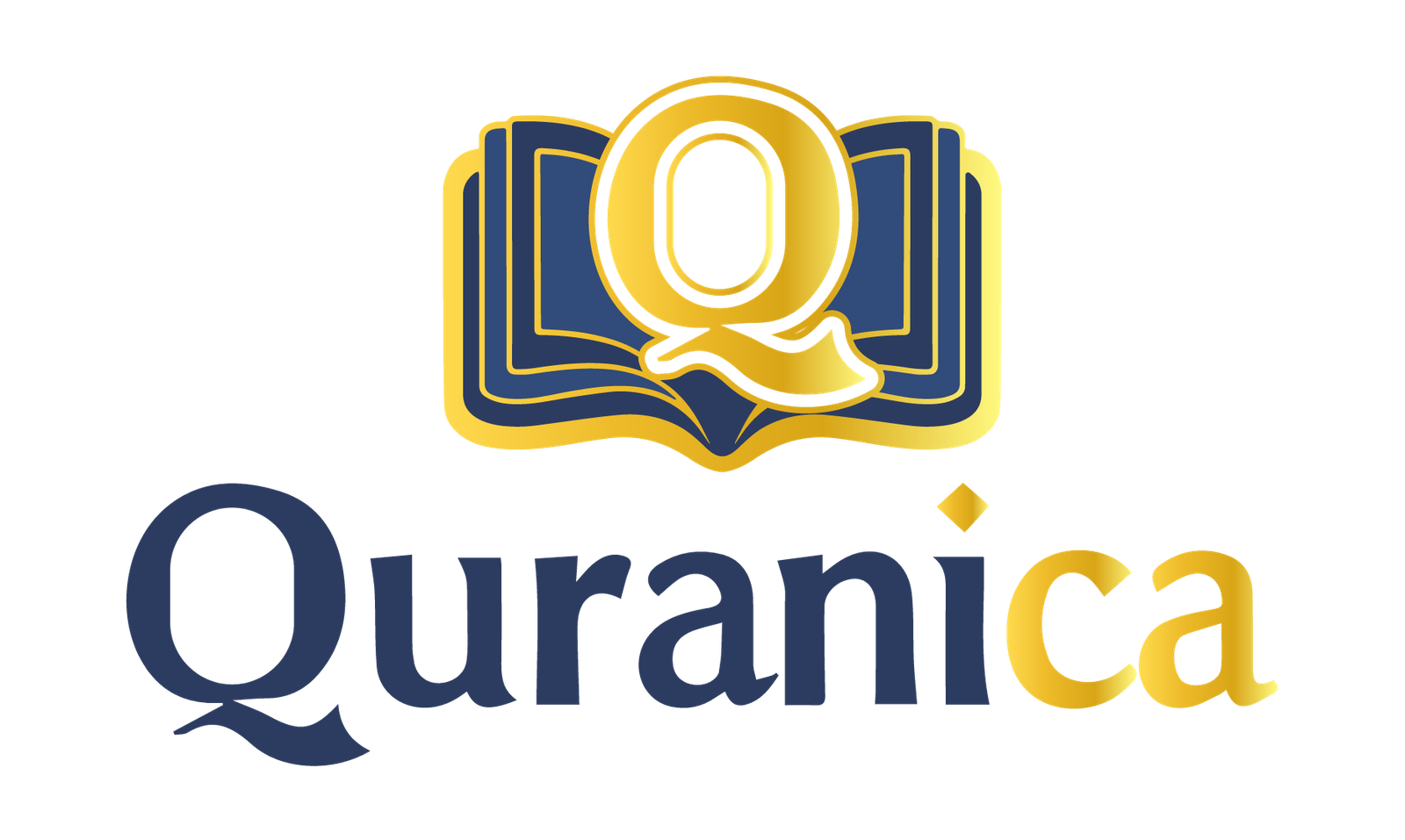
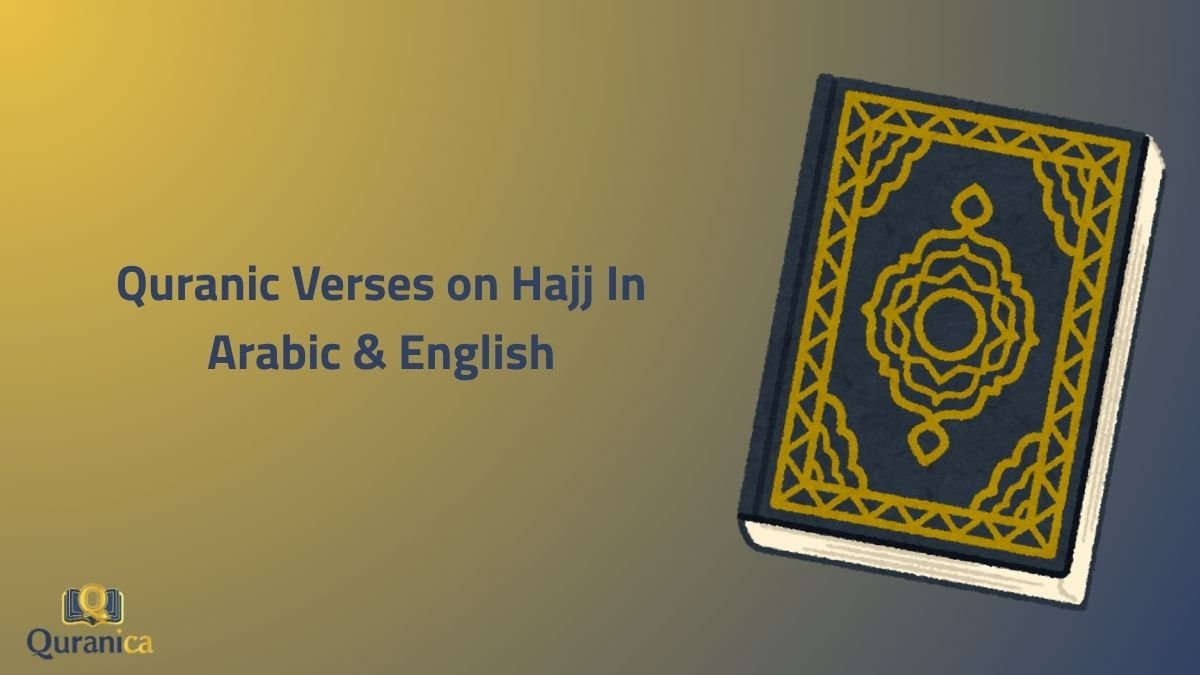



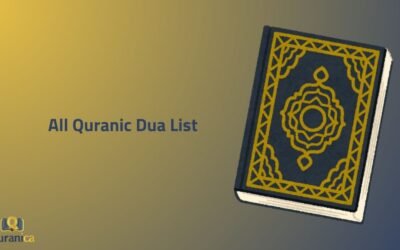

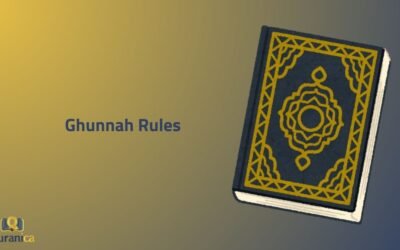
0 Comments